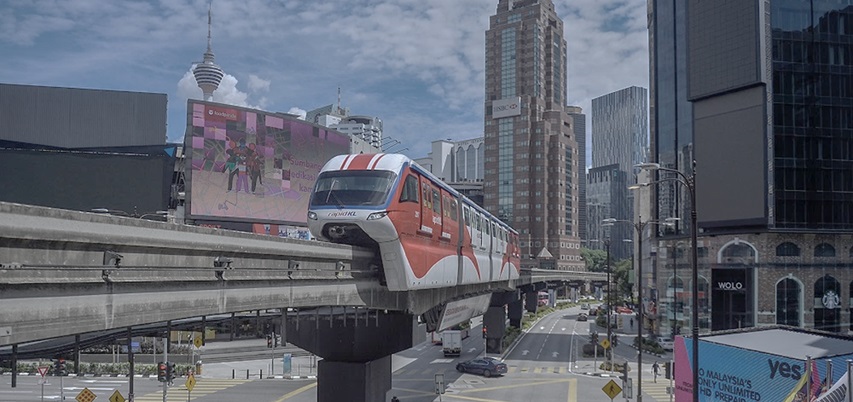December 03, 2020 12:05PM
COVID-19: Impact on Malaysians since it started

After the recent spike of Malaysia’s COVID-19 cases in October 2020, the government has imposed a Conditional Movement Control Order (CMCO) in an effort to curb the spread of the disease.
Unlike the Movement Control Order (MCO) in March 2020, CMCO is less restrictive. Malaysians are allowed to travel for work purposes, conduct various activities and dine in at restaurants while adhering to the standard operating procedures (SOPs) set forth by the government.
A similar lifestyle and sentiment study on the impact of COVID-19 pandemic in Malaysia was conducted back in March 2020 when MCO was first imposed by surveying 16,000 Malaysians using the unique Vodus survey methodology. This study is conducted in November 2020 by surveying 10,000 Malaysians as a continuation from the March’s study to track the changes in the sentiment and work pattern of Malaysians as the pandemic persists toward the end of 2020.
How are Malaysians feeling towards the COVID-19 pandemic?
With the recent spike of COVID-19 cases and the implementation of CMCO in October, Malaysians are starting to feel more stressed, bored and frustrated as compared to when MCO was first imposed in March.
50% of the Malaysians were optimistic about the future when COVID-19 first hit. However, that number has drastically reduced to 35%, while the number of Malaysians who are unsure and pessimistic about the future has increased.
With the recent announcement of the COVID-19 vaccines breakthrough, most Malaysians are expecting the vaccines to be available by mid 2021.
COVID-19 employment situation
More Malaysians are working at their usual workplaces during CMCO as the restrictions have been loosen.
The unemployment rate before COVID-19 outbreak measured using Vodus’ methodology is consistent with the government’s statistics at 4%, highlighting the accuracy of insights using Vodus’ unique market survey methodology to obtain huge survey samples with large sampling frame. The job loss due to COVID-19 has remained stagnant at 7% throughout the 10 months duration of the pandemic, highlighting the success in government's initiative in preventing further job losses.
Central region was observed to have the lowest rate of Malaysians who were laid off due to the COVID-19 pandemic.
Public satisfaction towards the government’s administration
Since COVID-19 hit its shores in Malaysia, the government has actively taken steps to better contain the pandemic situation. Apart from imposing SOPs among the community such as compulsory wearing of face masks and traveling restrictions, the government has also taken financial initiatives to lighten the economic burden. Economic Stimulus Package 2020 was introduced to support the society, moratorium was granted easing loans/ financing repayments and various tax deadlines were extended and/or revised.
In addition to that, with the encouragement of the government, various organizations including Non-governmental organizations (NGOs) started to produce personal protective equipment for front liners and hosted fundraising events to provide essentials.
Malaysians are generally happy with the government’s responses and actions are taken to reduce the spread of COVID-19. However, it seems that the government can focus their efforts in taking more initiatives to boost the economy.
Financial impact on Malaysian consumers after the end of moratorium period
The government announced a 6-month moratorium for loan/financing repayments from 1 April to 30 September 2020.
46% of Malaysians were greatly impacted financially by the end of the moratorium period.
Among the demographics that were disproportionately impacted are “Other” races, which include Native East Malaysians, adults aged 25 to 34 years old, and those of the lowest income bracket.
COVID-19 Precautionary measures
One of the first few precautionary measures Malaysians can easily adopt to help prevent the spread of COVID-19 is to practice physical distancing and wearing face masks. The government has made it mandatory for Malaysians to wear face masks at all times and physical distance (1-meter apart) themselves when in public. In addition, social activities such as religion, sports and entertainment activities have been limited with strict SOPs imposed. It is observed that majority of the Malaysians do practice these SOPs set forth by the government.
In the event that the COVID-19 vaccine is made available, 72% of the community would take the vaccine. There is only a small percentage (13%) of Malaysians who would not be willing to take the vaccine.
Conclusion
The COVID-19 pandemic has severely impacted the economy of every country in the world and Malaysia is no exception. The Malaysian government is actively implementing measures to prevent the spread of this disease. The recent reinstatement of CMCO caused Malaysians to feel less calm but overall, Malaysians seem to have adopted to the ‘new normal’ since March 2020 when MCO was first imposed. Fortunately, the reinstatement of CMCO did not increase unemployment rate and most Malaysians are able to work outside of their homes.
Malaysians are happy with the government’s responses to better contain the pandemic from the wellbeing of both society and economy perspective. However, Malaysians view that more efforts can be focused on boosting the economy as most Malaysians are greatly affected when the moratorium period introduced by Bank Negara Malaysia to help with loan/ financial repayments ended.
With the uncertainties of the COVID-19 outbreak, it is refreshing to see that precautionary measures and SOPs that were set by the government are consistently practiced among Malaysians as Malaysians agree that it is effective in fighting COVID-19. Malaysians in general have an optimistic outlook of the future and believe that the vaccine will be made available by mid 2021.
Malaysians should continue complying and cooperate with the government for the successful containment of COVID-19.













